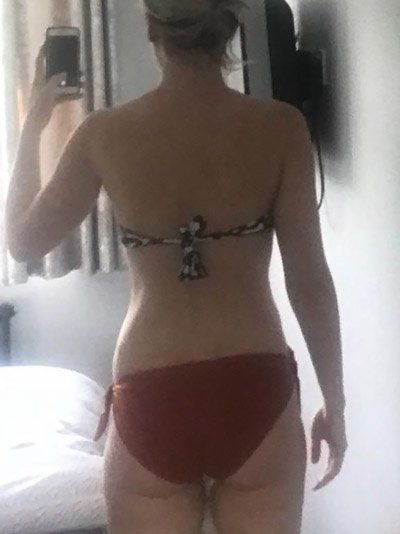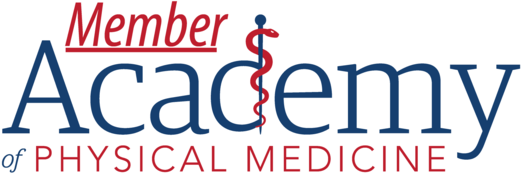Allied Health Professional
Osteopathy is recommended by your GP's and the NHS.
Holistic Approach
I look at your individual problem as well as your day to day life to improve your overall health.
Accredited Expert
I am registered with the General Osteopathic Council and I am a member of The Institute Of Osteopathy.
Personal Approach
I take the time to ensure that your treatment is tailored to suit your exact requirements.
Great Reviews
Just take a look at my Testimonials page and Free Index page to see the benefits of my treatments.
Osteopathy
What Is Osteopathy?
Osteopathy is an established, recognised system of diagnosis and treatment which lays its main emphasis on the structural and functional integrity of the body.
It is distinctive in the fact that it recognises that much of the pain and disability which we suffer stems from abnormalities in the function of the body's structure as well as damage caused to it by disease.
Osteopathy is a statutorily regulated system of diagnosis and treatment that lays its foundations on the musculo-structural integrity of the body. It adopts many diagnostic procedures used in conventional medical assessment and diagnosis. Its main strength however, lies in the unique way the patient is assessed from a mechanical, functional and postural standpoint and the manual methods of treatment applied to suit the needs of the individual patient. Much of the physical pain and discomfort we suffer often arises from the misalignment or abnormality in this physical function of the body. Bad posture, excessive or improper use as well as diseases such as osteoarthritis can lead to such abnormalities or misalignment and if left untreated, it could lead to long-term or permanent damage.
[Description by the General Osteopathic Council, 28th October 1998]
Regulation of Osteopathy
All osteopaths in the UK are regulated by the General Osteopathic Council (GOsC).
Osteopaths are required to renew their registration each year and we provide registrants with an annual licence to practise. As part of this process, the GOsC checks that osteopaths have current professional indemnity insurance, remain in good health and of good character, and have met mandatory continuing professional development requirements.
after
before

A Medical Research Council trial comparing treatment options for lower back pain found that spinal manipulation, added to GP care, is clinically effective and the most cost-efficient option for patients (UK Back Pain Exercise and Manipulation Trial, MRC, 2004).
MashIt
In 2006, the Department of Health published guidelines which advocated the establishment of multidisciplinary clinical assessment services and recognised that MSDs can often be resolved quickly and effectively by treatments such as osteopathy (The Musculoskeletal Services Framework. A joint responsibility: doing it differently, DH, 2006).

“Not sure what I did before discovering this Product. It’s super!”
Aspects of osteopathic care, notably spinal manipulation, are also included in national and international clinical guidelines (Low back pain and sciatica in over 16s: assessment and management, NICE guideline [NG59], November 2016, and European acute and low back pain guidelines, 2004).
Elvina's Osteopathic Services
I treat a range of injuries and conditions including:
- Primary Mechanical Back Pain
Back pain caused by abnormal stress placed on the muscles of the spinal column, typically resulting from bad habits like poor posture, incorrect bending and lifting weights either in daily activity or in weight training. This can present as Acute or Chronic back pain.
- Secondary and Compensatory Back Problems
These arise from spinal disc problems (e.g. herniated disc, disc bulge) caused by the many stresses the spine will sustain and the compensatory patterns that follow. Typically, these problems lead to lower back pain, numbness, and weakness. While chronic in nature they will have acute flare ups.
- Pregnancy Related Back Pain
As a pregnancy progresses the spine must deal with a lot of changes especially the lower back, due to the growth of the baby and the additional weight in the front of the body. Remember also that the upper back too also must adapt to the enlargement of the breast as they grow in order to produce milk for the new-born. Pubic symphysis dysfunction (PSD) is also treated.
- Neck Pain
Typically this will be mechanical neck pain caused by a pulled muscle or the compensatory pattern set up following a whiplash incident or long-term bad posture such as slouching at a computer at work, sitting in odd positions at home on the sofa to watch TV.
- Tech Neck
New to the list as well is Tech Neck - yes this is as it sounds, pain from looking down at wireless devices like phones and tablets for prolonged lengths of time.
More information at: https://www.insider.com/what-is-tech-neck-neck-pain-from-phone-2017-12
- Muscle Spasms
These may be caused by either direct damage to muscles (e.g. pulling a hamstring whilst running) or as a protective contracture, which is often nature’s way of creating a splint to protect an underlying fault like when you get acute back pain.
- Tension Headaches
Sometimes known as cervicogenic headaches - these are the most common form of headaches. They are caused by muscular tension around the head, neck and jaw, and present as a constant pressure around the skull. Tension headaches can affect everyday life, especially when they increase in frequency and duration. There are however many other types of headache and migraine that may not be suitable for treatment.
- Joint Pain / Arthritic Pain
Arthritic pain is due to joint damage or “wear and tear” generally occurring in either weight bearing joints like the knee or in highly mobile joints like the shoulder, but can occur anywhere as damage is dependent on your lifestyle and preferred activity levels.
- Nerve Pain / Sciatica / Neuralgia
This is generally experienced as a sharp shooting pain. Osteopathy can help to try and reduce the pressure on the nerve.
- Muscle/ Tendon Pathologies / Minor Sport Injuries
- Achilles tendonitis, tennis elbow generally these are caused due to a repetitive movement which had led to some underlying muscle or damage.
- Minor sports injuries and tensions in daily living could cause daily tensions and sports injuries. These are easier to resolve the sooner they are treated before compensation patterns set up.
- Circulatory Problems and Cramp
Improving muscle contaracture and releasing tension will improve circulation, and in many cases, help with cramp as well. Unless there are underlying reasons for it, for example, it is a side effect of medication.
- Posture Related Compensations
Sitting slouched and just sitting generally for very long periods of time have various effects on the body and can lead to frozen shoulders especially if there is a previous injury. Also, general body aches are one of the biggest complaints seen by osteopaths general / non specific shoulder aches.
- Fibromyalgia
Fibromyalgia sufferers are normally middle aged women and experience pain throughout the body, particularly manifesting in joint pain.
- The condition can be quite long term and requires considerable treatment and careful management. Fibromyalgia effects the body’s soft tissue such as muscles, tendons and ligaments and usually presents in neck, elbows, pelvis, knees, feet, hips and lower back areas. Swelling is not common with this condition and conventional tests cannot determine the disease.
- Sleep problems associated with fibromyalgia can lead to tiredness and exhaustion.
- Osteopathic treatment can relieve fatigue, headaches and muscle pain caused by fibromyalgia. Added benefits are improved mobility, joint pain relief and improved flexibility. Osteopathic treatment for this condition - gentle palpation and limb rotation, muscle stretching and advice on exercises, and possibly other lifestyle changes.
- Digestion Problems
Two of the common digestive problems that osteopaths help with are acid reflux irritated by a tight diaphragm and IBS (irritable bowel syndrome). IBS is a huge subject with many complicated causes which can cause bouts of stomach cramp, bloating, diarrhoea or constipation. The exact cause of irritable bowel syndrome is unknown, but most experts think it is affected by diet, stress, anxiety and depression. It is thought to be helped by exercise, change of diet and relaxation.
Book Your Osteopathy Appointment
Contact Us
We will get back to you as soon as possible.
Please try again later.
Elvina’s Osteopathic Clinic,
Banstead Road,
Ewell, Epsom, Surrey,
KT17 3HG.
Mob: 07960 941461
All Rights Reserved | Elvina’s Osteopathic Clinic | Website By
Infoserve |
Privacy Policy & Cookie Policy





